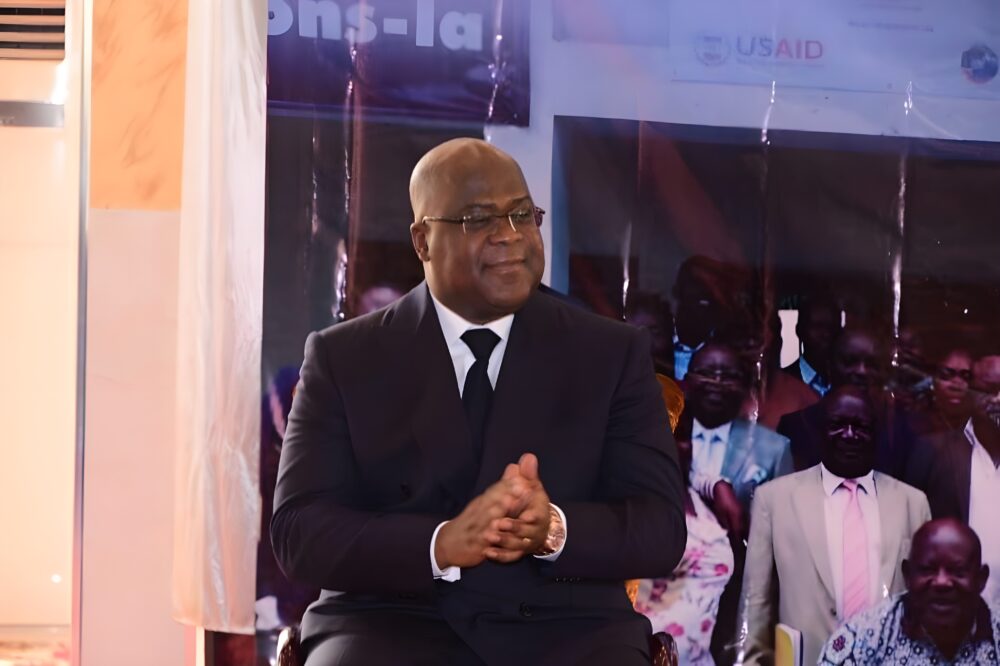Former DRC president Joseph Kabila.
President Cyril Ramaphosa and his Zimbabwean counterpart Emmerson Mnangagwa are working to persuade Congolese President Félix Tshisekedi to drop treason charges against his predecessor Joseph Kabila.
Prosecuting Kabila could set a bad precedent in the region, months after the end of another tiff between former presidents, Ian Khama and Mokgweetsi Masisi, in Botswana.
Masisi, who stepped down after an electoral loss in October, had pushed Khama into exile for years, forcing him to spend time between South Africa, eSwatini and the UK, where he was born.
Since fleeing the Democratic Republic of the Congo (DRC) in 2023, Kabila has been shuttling between Zimbabwe and South Africa, where he was doing postgraduate studies.
He returned to his country in June, setting up base in the M23-controlled North Kivu capital, Goma.
He faces charges including treason, complicity with the armed group M23, crimes against humanity and massive corruption during his 18-year presidency.
The DRC military auditor general has asked for the death sentence if the former president is convicted.
Mnangagwa hosted Ramaphosa in Harare on 29 August, where the latter opened the Zimbabwe Agricultural Show.
On the sidelines of the event, they spoke about Kabila’s predicament in the DRC and agreed that the treason charges were not fair, sources told the Mail & Guardian.
It was resolved that a meeting between Tshisekedi and Kabila should be arranged.
However, ahead of that, the two leaders needed to have a meeting with Tshisekedi.
 Congolese President Félix Tshisekedi
Congolese President Félix Tshisekedi
On Thursday last week, at the request of Ramaphosa, Tshisekedi flew into Johannesburg for a short visit , which the presidency said was part of South Africa’s “constructive role in promoting peace and stability in the DRC”.
It is understood that, during their two-hour, closed-door meeting at Mahlamba Ndlopfu in Pretoria, they contacted Mnangagwa by phone to discuss the Kabila situation.
The Zimbabwean and South African presidential spokespersons had not responded to repeated inquiries from the M&G by the time of publication.
Tshisekedi’s visit coincided with the South African National Defence Force’s (SANDF) phased withdrawal of 800 troops deployed to Lubumbashi in February as M23 rebels marched into Goma.
Sources told the M&G that Tshisekedi reminded Ramaphosa of their Kinshasa meeting in July, where the two agreed to co-operate on security.
Tshisekedi wanted the SANDF to stay put in the DRC because its withdrawal could open a vacuum for M23 to cover more ground.
Tshisekedi’s fears were confirmed by General Eddy Kapend of the Congolese National Army’s 22nd region, in a briefing to journalists early this week.
“The threat of the east is on us in such a way that, if we fail to stop the enemy’s progression from where they are, it means we will be the first target,” he said.
“We look at this and think they can attack everywhere, but as long as they don’t take Katanga, the country will survive,” Kapend said.
However, the SANDF’s withdrawal is underway, sources said.
One of the major concerns was that the DRC had not paid part of its Southern African Development Community Mission in the DRC bill for the regional deployment in eastern Congo, estimated to be about $200 million.
On the sidelines of a UN General Assembly meeting, Tshisedeki held a meeting with Frontier Services Group’s chief executive Erik Prince. In January, the DRC engaged FSG as a security contractor.
Meanwhile, on 17 and 18 Septem-ber, representatives from the DRC, Rwanda, the United States, Qatar, Togo — which is the African Union facilitator — and the African Union Commission convened the second meeting of the Joint Security Coordination Mechanism in Washington to advance the implementation of the Democratic Republic of the Congo peace agreement signed on 27 June.
The purpose of the mechanism is to help implement critical security components of the deal, especially around dealing with the Democratic Forces for the Liberation of Rwanda rebels and managing Rwanda’s defensive security posture.
The parties agreed to implement the operational order from 1 October. Under it, the DRC will withdraw support for the rebels and Rwanda will lift its defensive measures.